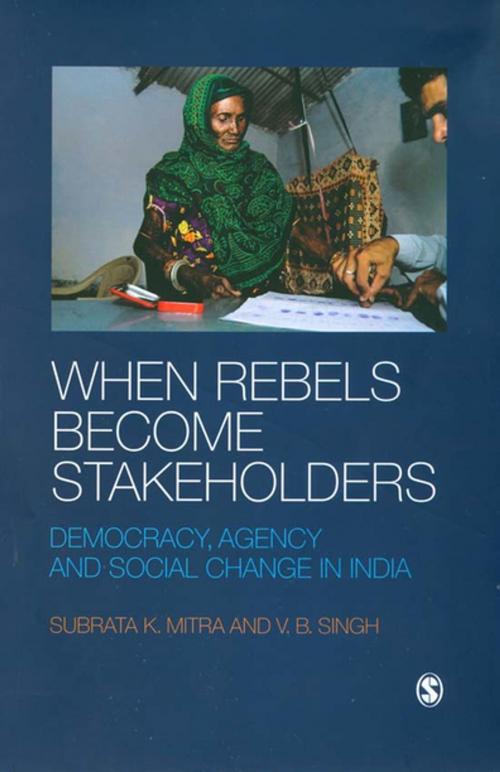When Rebels Become Stakeholders
Democracy, Agency and Social Change in India
Nonfiction, Social & Cultural Studies, Political Science, Government, Elections, Politics, Practical Politics| Author: | Subrata K Mitra, V B Singh | ISBN: | 9789352802104 |
| Publisher: | SAGE Publications | Publication: | May 13, 2009 |
| Imprint: | Sage Publications Pvt. Ltd | Language: | English |
| Author: | Subrata K Mitra, V B Singh |
| ISBN: | 9789352802104 |
| Publisher: | SAGE Publications |
| Publication: | May 13, 2009 |
| Imprint: | Sage Publications Pvt. Ltd |
| Language: | English |
When Rebels Become Stakeholders: Democracy, Agency and Social Change in India explores the agency of ordinary men and women in the making of democratic social change in India. The study is specific to India, but the issues that it examines are of wider significance. The authors join the debate on democracy and development on the basis of case studies that showcase the opinions and attitudes of the Indian voter. They assert that mass perception of institutions, policies and processes—so often dismissed as mere false consciousness or as the conditioned reflex of a gullible public, manipulated by the rhetoric of populist politicians—is our only window to the inner dynamics of democracy and social change.
The authors have used the public opinion data from three national surveys of the Indian electorate held in 1971, 1996 and 2004 to focus on the political understanding of India’s voters and their leaders. While agency is a much-discussed theme in contemporary social sciences, connecting the rationality of ordinary men and women to explain electoral participation and rapid structural change in the lives of people of this country is specific to this study. This book argues that the cohabitation of democracy and social change in India is not merely incidental or coincidental; rather the two are institutionally linked in a manner that is fundamentally causal, to the extent that the weakening of the one renders the other ineffective.
This book would be of interest to researchers and scholars of political science, international relations, democracy, Indian politics, political analysts, sociology, development studies, journalism, comparative politics and public administration.
When Rebels Become Stakeholders: Democracy, Agency and Social Change in India explores the agency of ordinary men and women in the making of democratic social change in India. The study is specific to India, but the issues that it examines are of wider significance. The authors join the debate on democracy and development on the basis of case studies that showcase the opinions and attitudes of the Indian voter. They assert that mass perception of institutions, policies and processes—so often dismissed as mere false consciousness or as the conditioned reflex of a gullible public, manipulated by the rhetoric of populist politicians—is our only window to the inner dynamics of democracy and social change.
The authors have used the public opinion data from three national surveys of the Indian electorate held in 1971, 1996 and 2004 to focus on the political understanding of India’s voters and their leaders. While agency is a much-discussed theme in contemporary social sciences, connecting the rationality of ordinary men and women to explain electoral participation and rapid structural change in the lives of people of this country is specific to this study. This book argues that the cohabitation of democracy and social change in India is not merely incidental or coincidental; rather the two are institutionally linked in a manner that is fundamentally causal, to the extent that the weakening of the one renders the other ineffective.
This book would be of interest to researchers and scholars of political science, international relations, democracy, Indian politics, political analysts, sociology, development studies, journalism, comparative politics and public administration.















